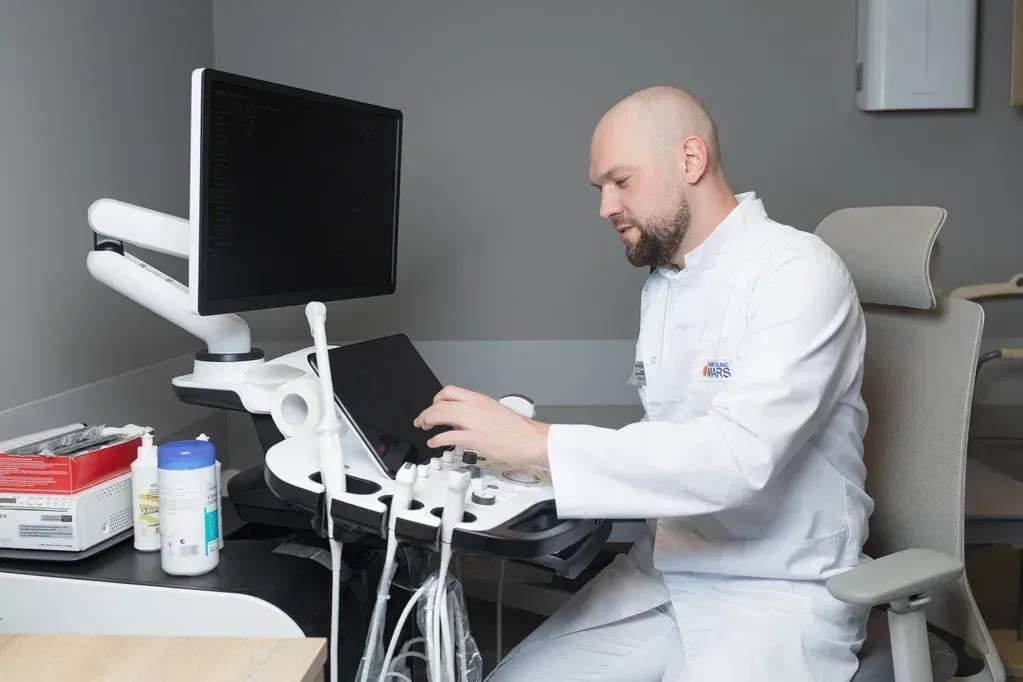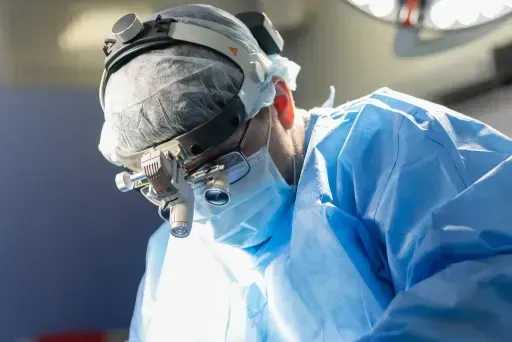Varicocele
Varicose veins of the spermatic cord, which occurs mainly on the left side and occurs in 15-20% of men. The disease is often associated with infertility, as it affects spermatogenesis and can impair sperm quality, and can also lead to premature aging of men due to a decrease in the production of the main male hormone testosterone.

Varicocele develops as a result of venous congestion and abnormal reverse blood flow through the veins of the testicle. These disorders lead to the fact that the testicle does not receive enough oxygen, which causes a local increase in temperature and disrupts the testicles. In conditions of varicocele, antisperm antibodies are also formed and testosterone production is disrupted. All this contributes to a decrease in the concentration of spermatozoa and a deterioration in their mobility. Varicocele can be both unilateral (more often left-sided) and bilateral, and in the presence of varicocele in men who have applied for infertility, it is detected in about 80% of cases. In adolescents, varicocele can lead to hypotrophy (reduction of testicular volume) of the affected testicle and further problems with reproductive function.
Causes
Violation of venous outflow from the testicle
Genetic predisposition
Anatomical features of the location of veins
Physical overexertion and weight lifting
Symptoms
Pain and discomfort in the scrotum, aggravated by physical exertion
Enlargement and lowering of the scrotum on the affected side
Dull pain or heaviness in the testicle
Infertility or decreased sperm quality
Hypotrophy of the affected testicle
After-effects
Without treatment, varicocele can lead to a significant decrease in sperm quality, which is the main cause of male infertility in this pathology. The testicle is exposed to hypoxia and heat due to venous congestion, which disrupts its function. Varicocele is also associated with the risk of testicular hypotrophy and can lead to impaired testosterone production, which negatively affects men's health in general, including sexual function and hormonal balance
Лечение

Conservative treatment
Treatment of varicocele can only be surgical, conservative methods can help reduce symptoms, but do not eliminate the problem. Sometimes it is recommended to wear scrotum support devices, use painkillers and avoid heavy physical exertion. However, such treatment does not prevent the progression of the disease and does not solve the problem of infertility.

Surgical treatment
Surgical treatment of varicocele is the main one and is aimed at eliminating venous congestion in the spermatic cord. Indications for surgery are pain syndrome, testicular hypotrophy, and fertility problems. The most effective method is microsurgical varicocelectomy using the Marmara method. This operation is performed using a surgical microscope, which makes it possible to accurately isolate and ligate damaged veins. Patients, as a rule, can return to daily life within a few hours after surgery. In some cases, especially with relapses, laparoscopic ligation of the testicular vein may be used. Microsurgical varicocelectomy is considered the most preferred method due to its low recurrence rate (up to 2-3%) and high efficiency in improving sperm quality.
Schedule a visit to the clinic
How to reach
Moscow, 1st Yamskogo Polya Street, 15
Mon–Sun Around the clock
+7 495 255-50-03
How to get
From the Belorusskaya metro station of the Zamoskvoretskaya line - exit 4 After exiting the subway, walk through the pedestrian tunnel and climb the stairs. Move towards the railway tracks, go down the stairs immediately after them and walk along the house, then turn right onto 1st Yamskoye Pole Street. At the turn to 3rd Yamsky Pole Street, cross the road at the pedestrian crossing and continue along 1st Yamsky Field Street, after a few buildings on the left you will see Olympus Clinic MARS.
Travel time
9 minutes
Landmark
Olympus Clinic MARS sign
How to get
From the Belorusskaya metro station of the Ring line - exit 2. After exiting the subway, turn left and walk to the pedestrian crossing. Cross the road through two pedestrian crossings and move along the Tverskoy overpass. Go down the stairs immediately after the railway tracks, walk along the house, then turn right onto 1st Yamskoye Pole Street. At the turn to 3rd Yamsky Pole Street, cross the road at the pedestrian crossing and continue along 1st Yamsky Field Street, after a few buildings on the left you will see Olympus Clinic MARS
Travel time
11 minutes
Landmark
Olympus Clinic MARS sign


